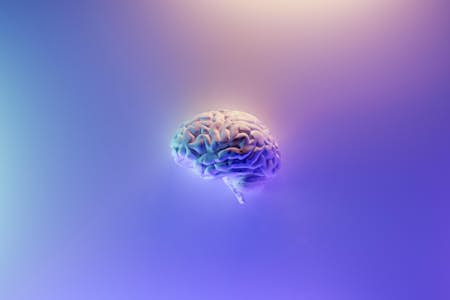Functional Neurological Disorder (FND) is a disorder where the brain has issues sending and receiving signals to the rest of the body. The brain is our powerhouse of information, so when brain function is impaired, it can cause psychological and physical dysfunction.
With this condition, the brain and its structure are perfectly healthy; however, what is happening inside is malfunctioning and causing problems we can't control. The cognitive approach might liken it to a computer with a malware problem – the computer is in satisfactory condition, but its software can't run correctly.
This disorder sits between the specialities of neurology and psychiatry and so is complicated. However, what is known is that FND can affect several different areas of the body and impact the nervous system significantly.
There is still much to learn about FND, how it impacts a diagnosed person, their family and friends, quality of life, and what support needs to be put in place to help.
What are the main symptoms of FND?
The main symptoms of FND are neurological issues, such as non-epileptic seizures, and motor issues (physical symptoms), such as tremors and painful spasms.
However, the exact symptoms that someone with FND can experience can be complicated, as this disorder can present itself in several different ways. For example, one person's symptoms might not resemble someone else's functional neurological disorder experience.
It is crucial to note that the psychological and physical symptoms of FND can vary from person to person, which is why doctors will treat each case differently.
With that in mind, doctors do use some common denominators as diagnostic indicators for this disorder, which are put forward as 'likely' symptoms and grouped into categories.
- Movement and Motor Symptoms: Tremors, tics, painful muscle spasms (dystonia), problems with walking, muscle and limb weakness, chronic pain, and paralysis.
- Sensory Symptoms: Strange and fleeting sensations, cognitive issues, hypersensitivity.
- Neurological Symptoms: Functional, dissociative, and psychogenic non-epileptic seizures (also known as non-epileptic attacks).
It is worth noting that these symptoms crossover with several other neurological conditions, such as epilepsy, multiple sclerosis, and Parkinson's disease, contributing to the complexity of FND diagnosis.
What causes FND?
First, it is crucial to understand that the exact cause of FND is unknown; because of this, all cases are subjective. However, FND is often attributed to environmental and psychological factors, such as being triggered by other neurological conditions, stressful events, mental health conditions, and psychological and physical trauma. Therefore, FND diagnosis is not a 'one size fits all' deal, and risk factors vary.
That said, it is possible to pinpoint specific triggers for FND, which, if found, could then be managed, helping reduce the likelihood of experiencing the neurological symptoms associated with FND.
Diagnosing FND
Diagnosing FND can be a similarly tricky task as finding the cause, as the crossover between other neurological conditions and disorders is high.Unlike many other medical conditions, FND does not have a standardised test, which means a diagnosis is based more on assessing the presenting symptoms and ruling out any other neurological disorders.
There are also other aids to help form a diagnosis, such as focusing on the patterns of neurological symptoms instead of focusing on the absence of information, such as MRI scans that appear normal.
Because of the complex nature of the disorder and, subsequently, the diagnostic criteria, multiple health professionals will often work together to help determine a diagnosis.
The tests and the diagnosis for FND will usually involve a neurologist, but you can also expect a psychiatrist or other mental health professionals to be involved.
An evaluation for a diagnosis of FND can include several parts, including:
- Medical testing – This may include blood tests, CT and MRI scans, nerve conduction tests, and an EEG to assess electrical activity in the brain.
- Physical assessments - A healthcare professional will ask you questions designed to get an in-depth look at your health, signs, and symptoms you are experiencing.
- Psychiatric assessments - Your doctor will refer you to a mental health professional, if needed, to gain a detailed picture of your feelings, thoughts, and behaviour, along with discussing your symptoms.
With these elements, your doctor can generate a more accurate and inclusive picture of your experience, including any potential abnormalities.
Note your healthcare provider might give a different name for FND, such as functional neurological symptom disorder or conversion disorder. If you have more specific symptoms of FND, you might receive a diagnosis of FND with a more specific name based on your neurological symptoms.
For example, if your FND symptoms include difficulty walking, your health professional may choose to call it functional weakness, functional gait disorder, or class it as a functional movement disorder.
Can FND be treated?
The good news is that FND can be treated and managed, though your treatment will depend on the symptoms experienced. The most likely outcome is that FND treatment will involve various specialists working together to provide a well-rounded approach. For example, your treatment might include sessions with a psychiatrist, occupational therapist, neurologist, mental health professional, physical therapist, and other healthcare providers and therapists if they can help.
The first step for treatment is understanding how someone is personally affected by FND, as this will help identify suitable treatment and improve chances of recovery and management.
Your care team will also provide treatment to help manage any underlying neurological diseases or health problems that could be triggering FND.
Therapies can include psychotherapy, such as cognitive behavioural therapy (CBT), which can help with the psychological challenges that come with the disorder. There should also be stress reduction support to help with symptom reduction. This support can include meditation, breathing exercises, and progressive muscle relaxation techniques.
Occupational therapy, physiotherapy, and physical therapy can help manage potential physical complications such as movement issues, muscle or limb weakness, and tightness.
Where to find support for FND
Going through a disorder like FND can be life-changing. But support can be the difference between significantly struggling and being able to adjust and overcome.
There are several places to find support for FND, and they can all help combat different difficulties that symptoms can cause.
FND Hope is a charity that is, in their words, part of the only global patient-lead FND charity. They work to promote awareness, assist and support those with FND, and also advance research for the prevention, treatment, and recovery of this neurological condition.
Other charities in the UK that can provide support and information include FND Action and FND Friends, which also offer access to excellent support groups.
Mental health services to help treat mental health issues that can sometimes go hand in hand with FND can also be a good support option, along with talking therapies to help you talk through your feelings and experiences in a safe space.
Receiving a diagnosis of FND can be scary, but rest assured, treatment and support are available to minimise the disruption to your life.
So, what is FND?
FND is a neurological disorder that impairs the nervous system and disrupts the brain's ability to send signals to the body. Its common symptoms include neurological and motor issues such as non-epileptic seizures and painful muscle spasms. However, symptoms can vary significantly from case to case. There is no direct cause for FND, and it usually consists of several internal and external factors, making it difficult to diagnose. However, doctors can use several techniques to form a comprehensive evaluation and diagnosis.
Plenty of treatment options are available for the varying symptoms, such as physiotherapy, psychotherapy, and occupational therapy. In addition to friends and family, support groups and charities are also available to help those with the disorder. Many can manage their symptoms with a combination of these and go on to live happy and healthy lives.








